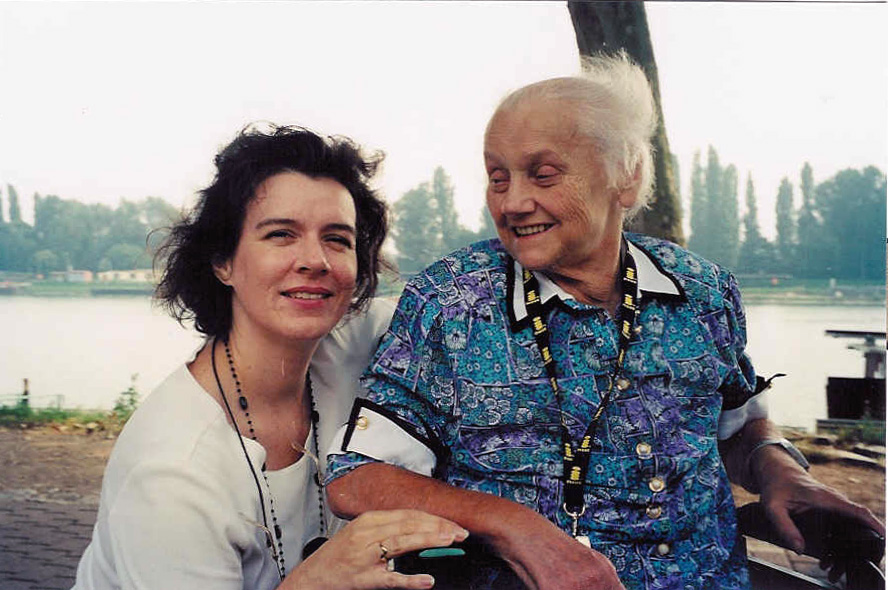
Herta and I, Wiesbaden, 2002
Today would have been my Aunt Herta’s birthday. I like to remember loved ones on their birthdays, and since Herta is one of the key characters in Jumping Over Shadows, I thought I’d create a tribute to her. Not only was Herta a key character in the book, but she was also a source of family stories for me. Once my grandmother (“Oma”) had passed on, Herta was my only link to the family’s past in Reichenberg.
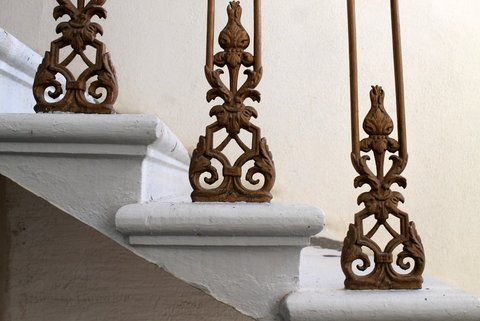
Herta told me the story of the Queen of the Night cactus, as related in the chapter “Fait Accompli I” in Jumping Over Shadows, p. 14-17. I will forever hear her clogs booming up this staircase in the apartment building where my grandfather used to live in Reichenberg, even though, of course, I never actually heard that. Such is the power of telling family stories! Herta would be tickled to bits, I am sure, that some of her stories landed in my book and that I ended up becoming a writer.
As I was thinking about her this morning, I remembered that she was one of the first to encourage me to become a writer. “We need another Utta Danella,” she said to me, referring to a German author we both liked to read at the time. Unlike my grandmother, who loved to read as a teen but later always had something more important to do, Herta loved to read and was a regular at the city library in Wiesbaden, where she had designs on systematically reading all the books, one shelf after another. I don’t think she ever managed that, but she did read ferociously.
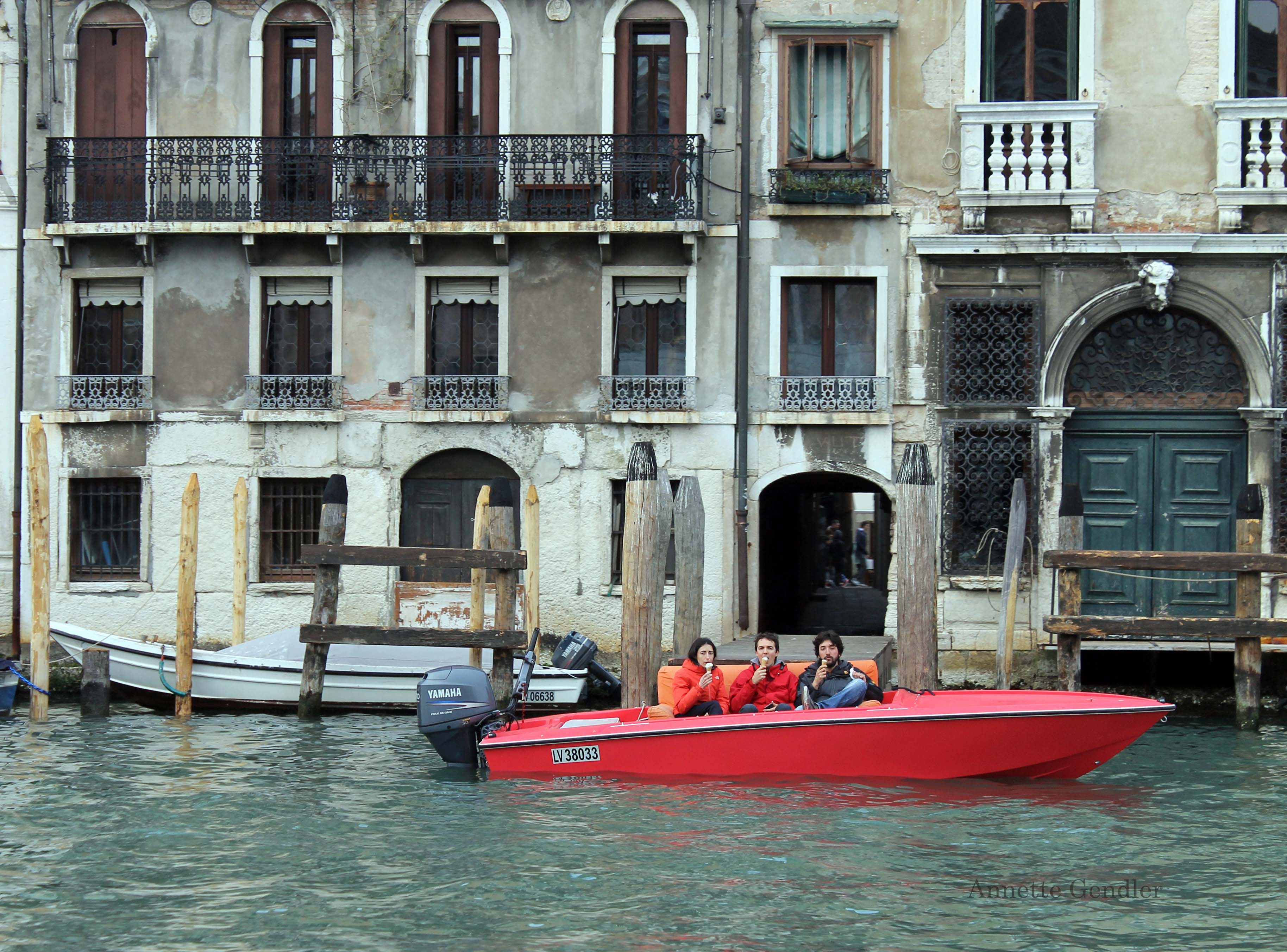
Unlike my grandmother, Herta knew English because her mother Resi (also one of the main characters in Jumping Over Shadows) had foreseen that English would become one of the main languages of the world and thus had her children tutored in English when it wasn’t offered in high school. Herta always spoke fondly of reading Jerome K. Jerome’s Three Men in a Boat with her tutor. I can still hear her pronounce the title in her German-accented English, followed by “Boy, did we laugh when we read that book!” Which is also why I remembered that title when I was editing the above picture from my trip to Venice at this very time last year. Oh, and Aunt Herta’s birthday is the day before my mother’s, and thus ingrained in my memory.
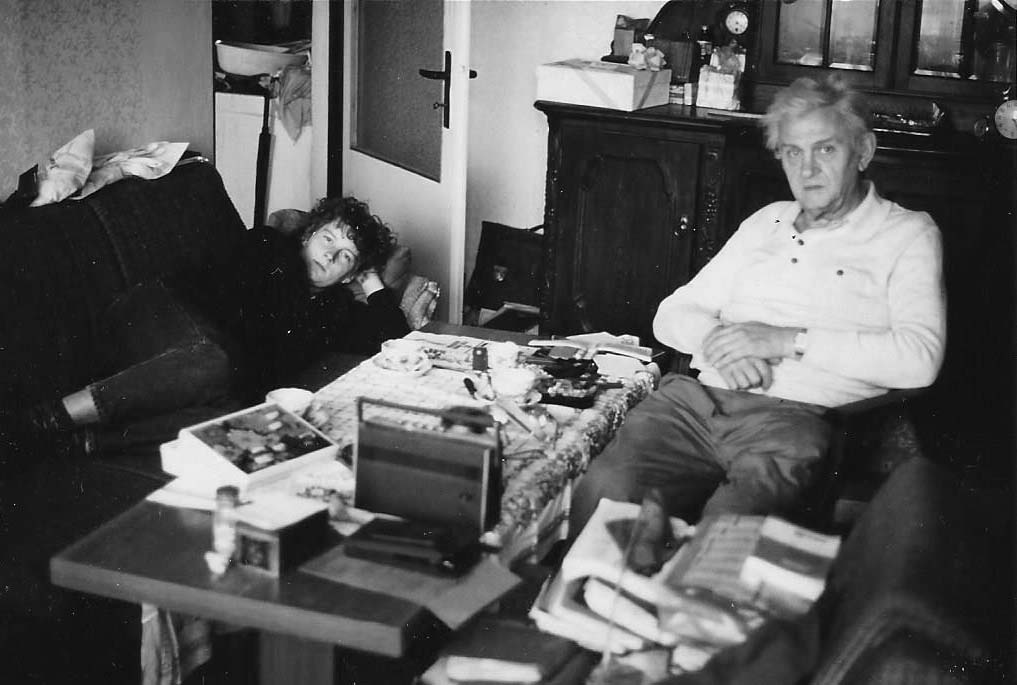
Ludwig and my sister in Liberec, 1988
Herta lived in Reichenberg (called Liberec since the end of World War II) until 1970 when she and her daughter (from a brief second marriage) fled Communist Czechoslovakia after the failed 1968 Prague Spring Uprising. They left her brother Ludwig behind (at the time Czech authorities never granted travel visas to an entire family to discourage defection); something my grandmother and my father always faulted her for. Nevertheless, once Aunt Herta surfaced in a refugee camp close to Wiesbaden (under the German Law of Return, any German defecting from the Eastern bloc was granted pretty much automatic citizenship in what was then West Germany), she became the cheerful aunt my siblings and I never had, and a dear friend and travel companion for our grandmother. She was a trained accountant and spoke fluent German, and so it didn’t take her long to get a job in the accounting department of one of Germany’s big department store chains, where her daughter also found work as a keypunch operator.
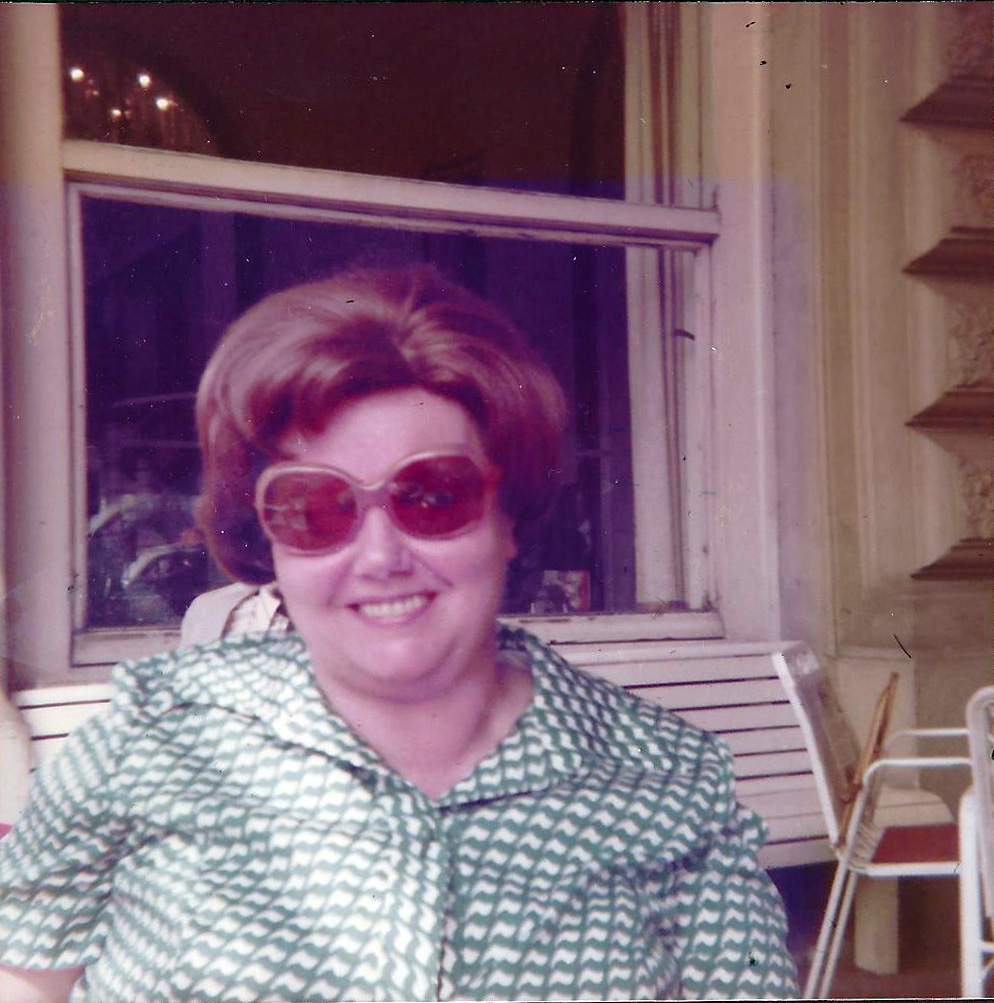
Herta in Vienna, on our trip together, 1977
Herta loved to travel (another thing I have in common with her), and as soon as she could afford it, she got my grandmother to go along on bus tours with her. She persuaded my grandmother to do a cruise of Norway (my grandmother was afraid of getting seasick but had a great time) and an extended bus tour of England and Scotland (my grandmother was clearly more comfortable on the European continent but nevertheless enjoyed the trip). And, most wonderful for me, Herta took me on a trip to Vienna when I was fourteen to show me her favorite city. She introduced me to her favorite Café Heiner, right behind the Steffl (Stephansdom–Vienna’s main cathedral) where one simply had to eat Stefanietorte. To this day, I instruct anyone who asks me about Vienna to visit that café and have that torte. And I made her climb the 343 steps up the tower of the Steffl, a feat we later loved to reminisce about.
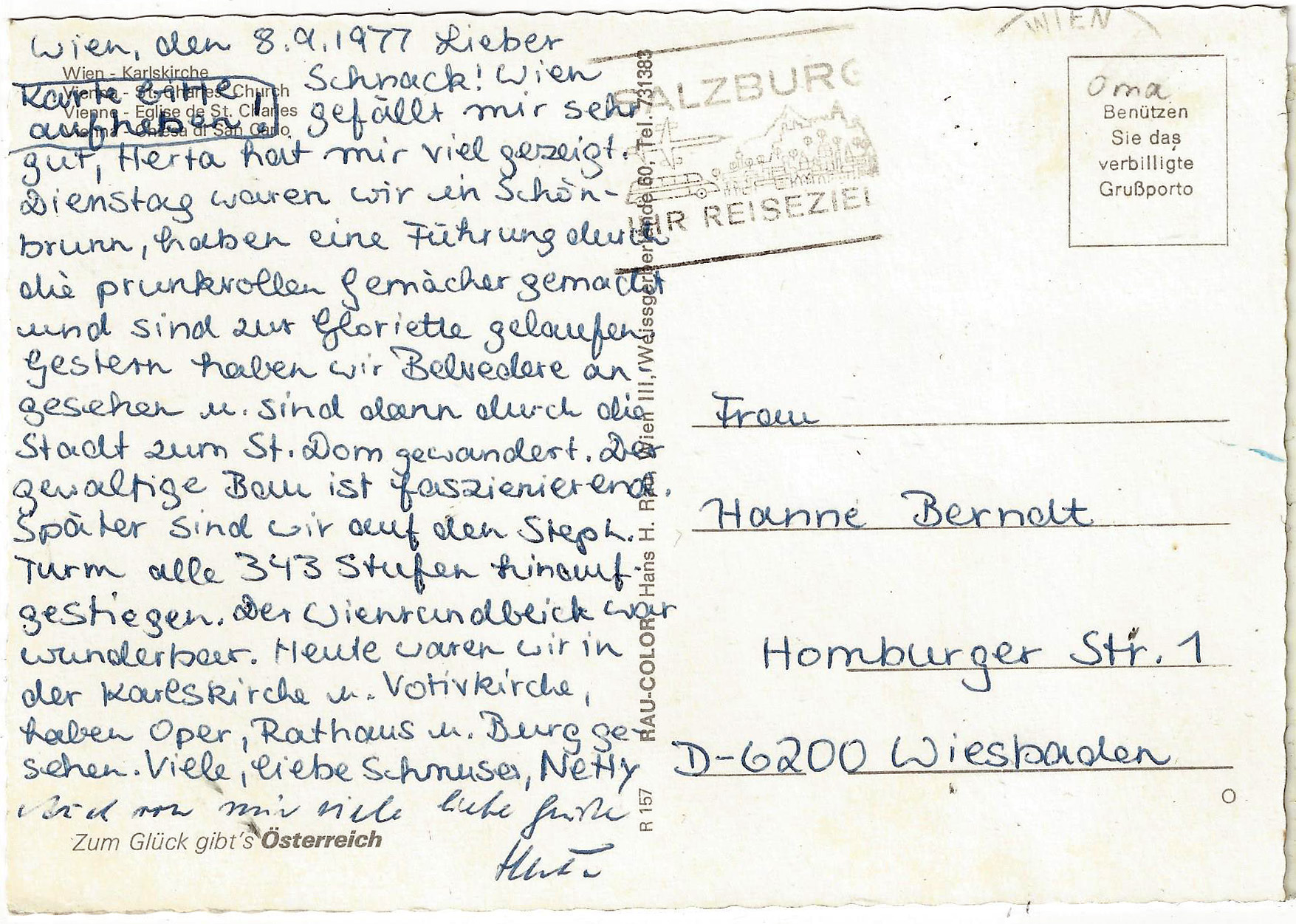
My postcard to my grandmother from my trip to Vienna with Herta
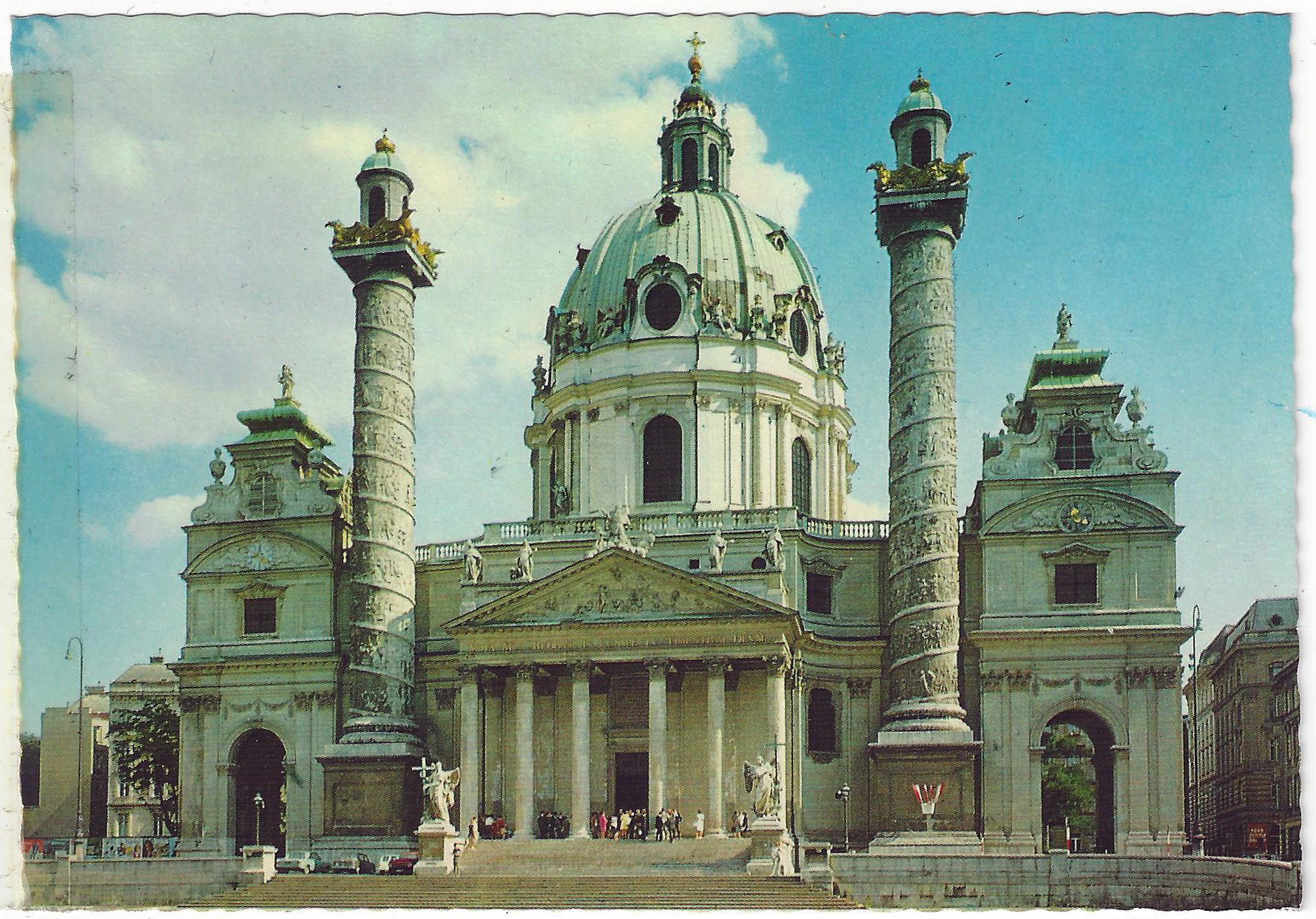
Karlskirche, Vienna, 1977 (front of postcard)
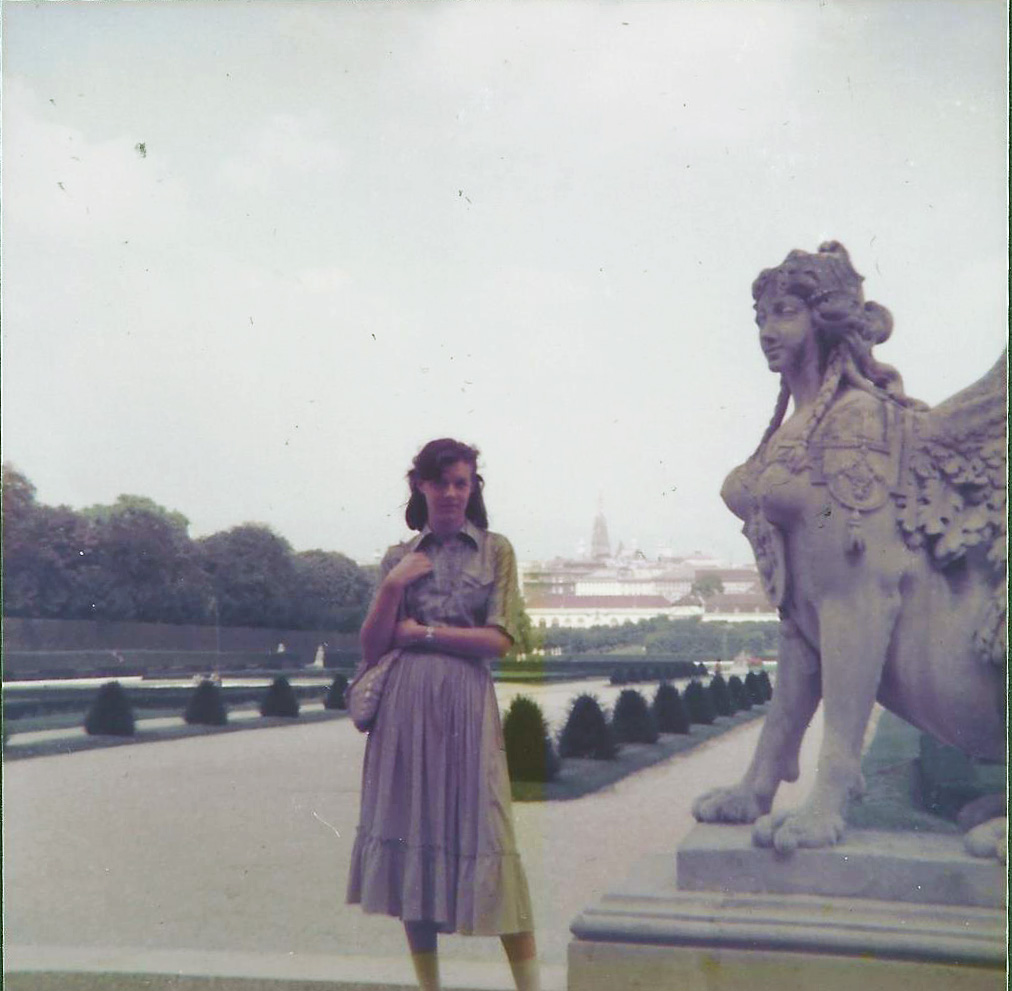
That’s me in the gardens of the Schönbrunn Castle in Vienna, 1977
Unfortunately, my little photo album from that trip does not yield any photo of Aunt Herta and me together. I only have these separate snap shots of us; but the above postcard I sent to my grandmother reports, in my authentic 14-year-old voice, what a great time I was having with Aunt Herta showing me around Vienna. What a gift, really, for my aunt to take me on a trip! That’s definitely how one creates memories, and how one lives on, in the hearts and stories of the next generation.
I wrote about my last visits with Herta, when she was already in a nursing home in Wiesbaden, in my essay The White World, published in the winter 2010 issue of Kaleidoscope. It was on my first nursing home visit in 2002 that I began wondering about who she had been in her youth, and thus I have Herta to thank for sending me on the journey of teasing out the family story that became the second thread in my book, and I am pretty sure she would be thrilled by that.
After my visit with Herta, I asked my sister to dig out our grandfather’s memoirs, which had been stored in her basement along with other family documents. I wanted to see if they would provide me with my grandfather’s take on his niece, Herta, on her mother, Resi, and on their whole life in Reichenberg.
Jumping Over Shadows, p. 178
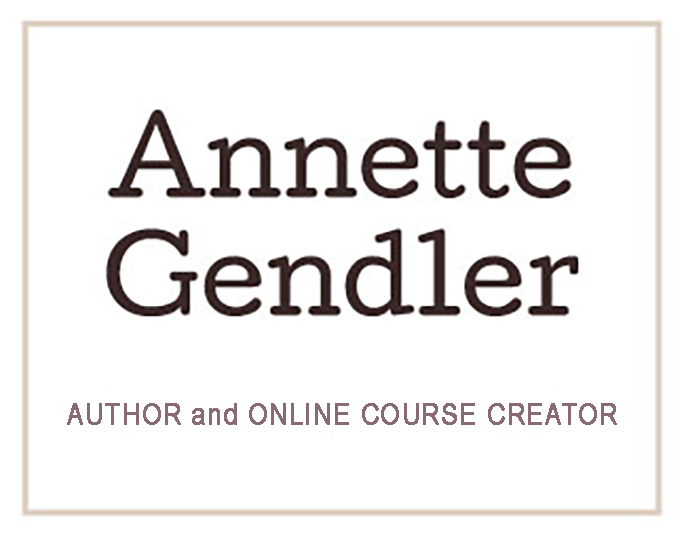
So interesting and a nice tribute to the aunt whom you loved.
Thank you, Nancy. Glad you liked it.
Thank you for sharing about Herta!
My pleasure 🙂
“Honor your ancestors because one day you’ll be one”. Annette, your family is lucky to have such a great historian.
Great point, Karen! Jewish tradition says that we’re granted eternal life if we honor our parents precisely because one day we will be the parent, and the ancestor.
It’s inspiring to see families connecting through the generations. Thank you for sharing this!
Glad you liked it!